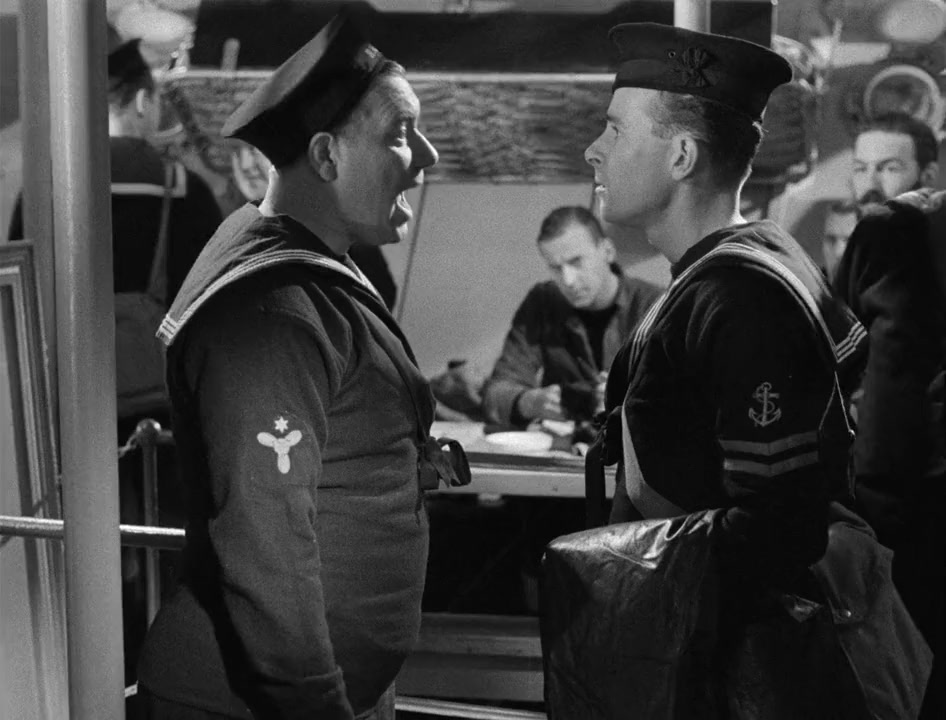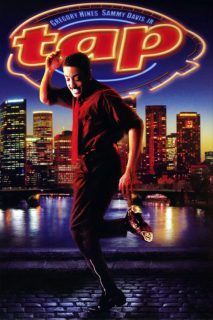
- Year: 1953
- Released: 19 Aug 1953
- Country: United Kingdom
- Adwords: Nominated for 1 Oscar. 4 nominations total
- IMDb: https://www.imdb.com/title/tt0045659/
- Rotten Tomatoes: https://www.rottentomatoes.com/m/the_cruel_sea
- Metacritics:
- Available in: 720p, 1080p,
- Language: English
- MPA Rating: Approved
- Genre: Drama, War
- Runtime: 126 min
- Writer: Nicholas Monsarrat, Eric Ambler
- Director: Charles Frend
- Cast: Jack Hawkins, Donald Sinden, John Stratton
- Keywords: submarine, sea, atlantic ocean, world war ii, naval officer, commander,
 | 7.4/10 |
The Cruel Sea Storyline
At the start of World War II, Cmdr. Ericson is assigned to convoy escort HMS Compass Rose with inexperienced officers and men just out of training. The winter seas make life miserable enough, but the men must also harden themselves to rescuing survivors of U-Boat attacks, while seldom able to strike back. Traumatic events afloat and ashore create a warm bond between the skipper and his first officer. Atmospheric sea footage.—Rod Crawford
The Cruel Sea Photos



The Cruel Sea Torrents Download
| 720p | bluray | 1.13 GB | magnet:?xt=urn:btih:50A869387098B2F795CCEB1F5A6C21BB31F40541 | |
| 1080p | bluray | 2.1 GB | magnet:?xt=urn:btih:F3A20E7160A02C71FA07083CBC642FC6D7435A0A |
The Cruel Sea Subtitles Download
The Cruel Sea Movie Reviews
Its beauty is in its ordinariness.
The best thing about this WWII naval picture is that it is so ordinary. What I mean by this is that there is no bigger-than-life Hollywood style hero who is invincible, but a collection of normal men showing great heroism collectively–sort of a tribute to the unsung heroes of the war. It’s set aboard a convoy escort ship’s captain and crew–through their tense moments, trials, successes and failures. In other words, its a WHOLE portrait of the war as seen through these sailors’ eyes–the good, the bad and the mundane.
The second best thing is the lovely look and feel–with great acting and direction. Jack Hawkins was, as always, wonderful but all the actors playing the crew did so well–and it’s a tribute to the production and direction–this didn’t just happen by chance.
In many ways, this film plays a lot like the great British film “In Which We Serve”–though unlike “In Which”, “The Cruel Sea” was made after the war. Both films together would make a wonderful night of movie viewing. Solid and exceptional.
The definitive naval war movie
The Cruel Sea is a powerful film that puts you in the battle of the Atlantic. The black and white photography unintentionally conveys the gritty reality of a grim war.(Somebody has said that World War II was a war fought in black and white.) And although the special effects are primitive by today’s standards, they are still pretty impressive. The film is an prime example of the post war school of British cinema before it was subsumed by Hollywood. It is a fine film, a fine war film and a fine piece of accurate history.
War at Sea, Well Above Average
It’s hard to understand what it is that turns some seamen into superior writers. Of course they have a lot of yarns to tell, but where does the skill in telling them come from? Nicholas Monserrat, on whose best-selling book this movie is based, never wrote a ground-breaking novel but no one is better at conveying the details of life at sea, at the maintenance and manipulation of ships.
This film matches Monserrat’s novel in its realistic portrayal of duty on a British corvette. Corvettes were smaller than destroyers, and slower and carried less armament, and they were uncomfortable to boot. They were designed to do only one thing: find and destroy German U-boats. The war against submarines didn’t go well for the Allies until about May of 1943, when new technology turned patrols by U-boats into something resembling suicide missions.
The characters we meet are nicely done. Most of them are jolly good chaps. Stanley Baker appears briefly as a stern but inefficient First Lieutenant who is induced to leave in a comic scene. There is, in fact, quite a lot of humor in the dialog. And there is of course drama, usually understated. The scenes of bloodshed are handled delicately. Some of the events were, or have becomes, clichés by now. The ship must stop for silent repairs in submarine-infested waters and somebody drops a monkey wrench — or, pardon me, an adjustable spanner. A handful of sailors alone in a rubber life raft must sing an absurd song and clap to keep warm and vital. Some of the wives on the beach are not worthy of their husbands. Others, who might be, are liable to be casualties of German bombs.
The movie isn’t overscored. During energetic combat scenes, when we might expect to be overwhelmed by some kind of march, where Muir Mathesson or Dmitri Tiomkin might be going berserk, there is no music at all, so we can listen to the clanks as the depth charges are rolled off the stern. The newsreel footage that is integrated into the movie is a little obvious but hardly poses a major problem. Nice sound work. In heavy weather, when the Compass Rose pitches into a swell, in addition to the generic whistling wind we hear the percussive slam of iron against sea water. A surprising amount of drinking goes on aboard the Compass Rose. There is a pint of beer with lunch and wine with dinner. There are cocktail parties attended by admirals. If somebody brings a cup of hot tea to the shivering lookout, there may be a tot of rum in it. And sometimes the officers just sit around the wardroom and get plastered. Now there is a civilized habit for you. The Brits had it just about right but, alas, abandoned the program and went on the wagon a generation or so ago.
The Anchor Bay DVD that I watched has a crisp transfer and is easy on the eyes. It’s not to be missed by anyone with an interest in World War II as seen from the deck of an ordinary British warship, one of little consequence in itself. In five years of sailing the crew sink only two U-boats and lose a ship of their own. Just a small ship and its crew, trying to do their jobs and stay alive in the process.



